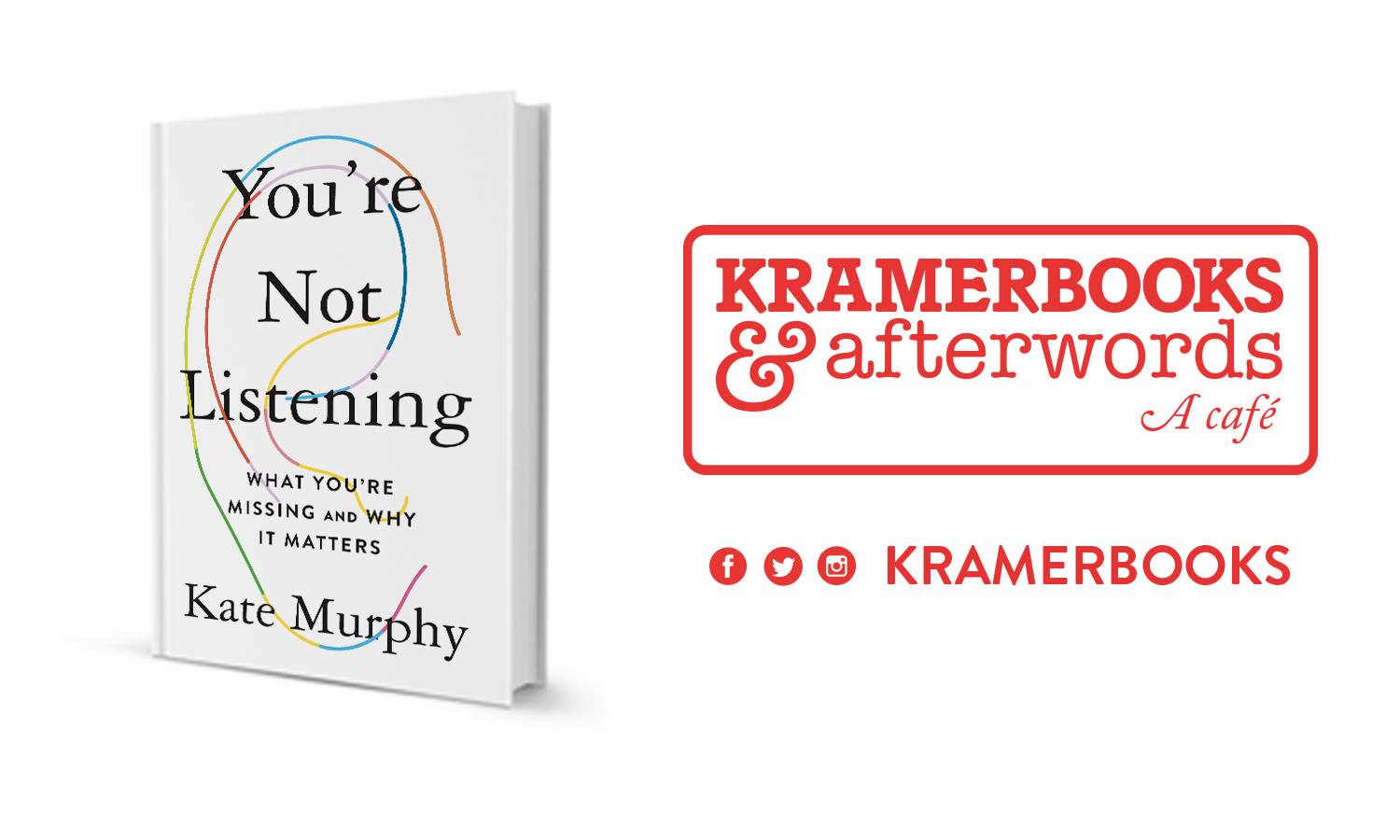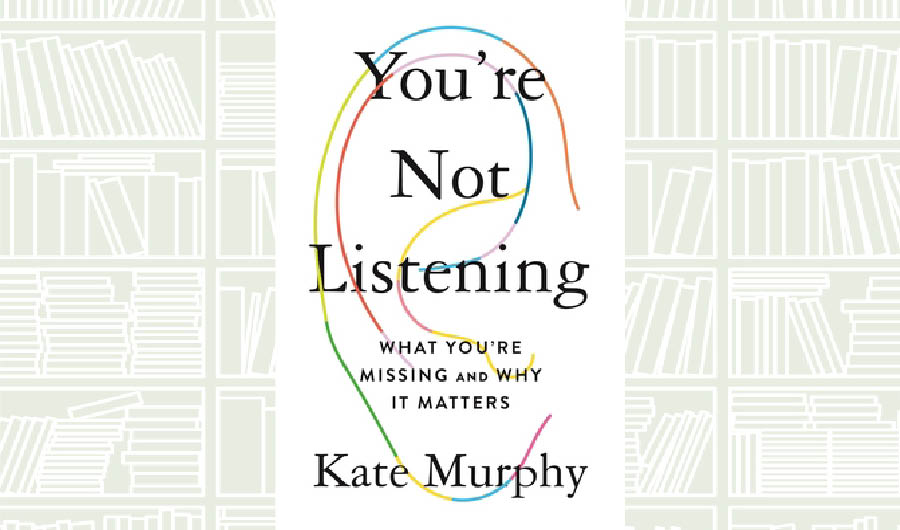


Writing isn’t brain surgery, but it’s rare when someone adept at the latter is also so accomplished at the former.

Occasionally wonky but overall a good case for how the dismal science can make the world less-well, dismal.Ī neurosurgeon with a passion for literature tragically finds his perfect subject after his diagnosis of terminal lung cancer.
Kate murphy you re not listening free#
The authors add, interestingly, that the same thing occurred in parts of Germany, Spain, and Norway that fell victim to the “China shock.” In what they call a “slightly technical aside,” they build a case for addressing trade issues not with trade wars but with consumption taxes: “It makes no sense to ask agricultural workers to lose their jobs just so steelworkers can keep theirs, which is what tariffs accomplish.” Policymakers might want to consider such counsel, especially when it is coupled with the observation that free trade benefits workers in poor countries but punishes workers in rich ones. The problem becomes thornier when it comes to the matter of free trade as the authors observe, “left-behind people live in left-behind places,” which explains why regional poverty descended on Appalachia when so many manufacturing jobs left for China in the age of globalism, leaving behind not just left-behind people but also people ripe for exploitation by nationalist politicians. The answer: “There is no evidence low-skilled migration to rich countries drives wage and employment down for the natives.” In fact, it opens up opportunities for those natives by freeing them to look for better work. Data can be adduced, for example, to answer the question of whether immigration tends to suppress wages. Economics can be put to use in figuring out these big-issue questions. It’s no secret, write Banerjee and Duflo (co-authors: Poor Economics: A Radical Rethinking of the Way To Fight Global Poverty, 2011), that “we seem to have fallen on hard times.” Immigration, trade, inequality, and taxation problems present themselves daily, and they seem to be intractable. “Quality of life means more than just consumption”: Two MIT economists urge that a smarter, more politically aware economics be brought to bear on social issues.
Kate murphy you re not listening how to#
In a chapter that is particularly helpful and relevant in our increasingly polarized world, Murphy offers suggestions on “Listening to Opposing Views,” including recognizing the rather remarkable fact that when people with “staunch political views” are challenged on them, “their brains reacted as if they were being chased by a bear.” On a practical level, the author also recognizes that it's not necessary to “listen to everyone until they run out of breath.” While the narrative runs out of steam toward the end, repeating points that have already been made, it offers enough valuable advice and concrete suggestions to make it worth reading, even for those who already think they know how to listen.Ī valuable corrective for a talkative culture. But instead of focusing on your breathing or an image, you return your attention to the speaker.” She points out that one of the primary obstacles to listening is the assumption that we know what someone is going to say, which means, unfortunately, that we're least likely to pay attention to the people closest to us, including spouses, children, and friends. During a conversation, “you make yourself aware of and acknowledge distractions, then return to focus. The author recommends thinking of active listening as a form of meditation. At the basis of listening, Murphy maintains, is a sharp curiosity and the kind of openness that indicates the hearer has something to learn from the speaker. The author suggests that what might seem at first to be a passive activity is in fact an active, demanding one and a skill that can be learned with practice.

Houston-based journalist Murphy delves into the academic research on listening, which tends to be scantier than that on its noisier cousin, talking, and chronicles her interviews with those whose work revolves around hearing and paying attention, including a priest, a bartender, and a CIA agent. A lively debut that asserts the power of closing our mouths and opening our ears.


 0 kommentar(er)
0 kommentar(er)
